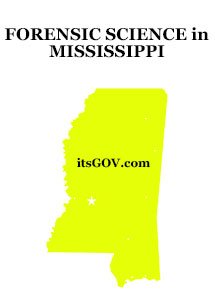Forensic Science
Forensic science combines science and investigation in order to aid and support the prosecution or defense in criminal and civil investigations. While the profession has been widely romanticized by various TV shows, make no mistake – this job is most likely different that you expect. In contrast with popular perception, this is a highly scientific role, which often involves detailed, painstaking work. Field duties are limited to a few areas of expertise, and most often than not a forensic scientist will spend his time in the lab.
If you made it this far, though, congratulations! You’re taking the first steps in joining a very rewarding profession and itsGOV is here to guide you through what you need to know and what you need to do to join a forensic science program in Vermont.
Depending on the type of forensic science practiced, different degrees and educational backgrounds may help a candidate get a job and excel in this field. Regarding formal education, requirements vary across jobs, but you should definitely have a solid background in mathematics, biology and chemistry.
The National Institute of Justice, a division of the U.S. Department of Justice, offers guidelines for model undergraduate and graduate forensic science degree programs. According to the American Academy of Forensic Science, strong programs should offer a curriculum that concentrates on scientific writing, laboratory skills, public speaking, and computer software application training.
Forensic Science Requirements in Vermont
Forensic scientists are crucial to a well functioning criminal justice system, as they often are responsible for providing the evidence that determines a defendant’s guilt or innocence. According to the U.S. Bureau of Labor Statistics, the job outlook for forensic scientists is good. The 13,000 forensic scientist jobs in the U.S. in 2010 are expected to increase by 19 percent, by 2020.
Job specialties for forensic scientists in Vermont include the following:
- Forensic Scientist
- Ballistics Expert/Technician
- Ballistician
- Crime Lab Technician
- Laboratory Analyst
- Crime Scene Analyst
Forensic Science Training in Vermont
The first step toward getting a forensic science job in Vermont is to earn a bachelor’s degree. There is one school in Vermont that has a bachelor’s degree program in forensic science from which nine students graduated in the 2008-09 school year.
In addition to a solid background in chemistry, biology and math, forensic sciences must have knowledge of scientific rules/methods, the English language, word processing, record keeping and report writing. The following personal characteristics are also needed for a successful career:
- Persistence
- Patience
- Critical thinking
- Detail-oriented
- Active listener
- Able to tolerate stress
- Ethical
- Independent
- Self-controlled
Employers of forensic scientists include government offices and insurance companies. Although entry-level salaries are often low, there is a potential for significant increases with five or more years of experience. Salaries also vary with location.
Working forensic scientists can increase their potential for advancement and salary increases by attaining professional certification.
The American Board of Criminalists offers certification in comprehensive criminalistics, as well as in special disciplines such as drug chemistry or trace evidence analysis. Candidates must successfully pass a three-hour, 220 multiple-choice-question examination to qualify.
The American Board of Toxicology offers a “Toxicology Specialist” certification to individuals with a bachelor’s degree in a natural science and at least three years professional experience in forensic toxicology. Candidates must be currently employed as forensic toxicologists and pass a written examination on the principles and practice of analytical toxicology.
Vermont Forensic Laboratory (VFL), a division of the State of Vermont Department of Public Safety, is the only forensic laboratory that serves Vermont’s entire criminal justice system. Evidence is brought to the lab by law enforcement departments, state attorney’s investigators, public defenders and game wardens. Opened in 1947, the lab was originally staffed entirely by sworn law enforcement officer. However, a conversion began in 1968 and by 2009 all personnel were civilians.
Forensic Science Salary in Vermont
The primary source of forensic science jobs in Vermont is with the state’s Department of Public Safety’s Forensic Lab. This lab in Burlington is the state’s only forensic lab and provides services to a wide range of agencies. Some of the types of professionals that seek the lab’s services include:
- Police officers
- Game wardens
- Attorneys’ investigators
- Public defenders
Since the Forensic Lab is the only crime lab, it provides a range of services. Lab technicians perform a wide range of analyses, while other personnel investigate crime scenes. While crime scene investigators (CSIs) are frequently sworn officers, this lab is staffed entirely by civilians.
Salaries for 2012 are available for some of the crime lab positions. The following forensic scientist positions can involve either working in the lab as a technician or in the field as a crime scene investigator. The 2012 annual salary for two of these positions is shown below:
- Forensic chemist II $42,411
- Forensic chemist I $40,498
Other forensic scientists in this division work entirely in the lab and frequently specialize in particular types of analyses. 2012 salary information was available for the following position:
- Forensic lab latent print examiner III: $63,419
Other specialties for forensic scientists include:
- Toolmark examination
- DNA analysis
- Blood pattern analysis
- Impression analysis
Forensic Science Schools and Colleges in Vermont
Bachelor’s Degree Programs in Vermont
| University | Castleton State College, Forensic Psychology B.S. |
| Duration | 4 years |
| Type | Full time, Part time |
| Tuition and fees | $20,406 in-state; $35,070 out-of-state per year |
| Program link |
Master’s Degree Programs in Vermont
There are currently no master’s programs offered in Vermont.



